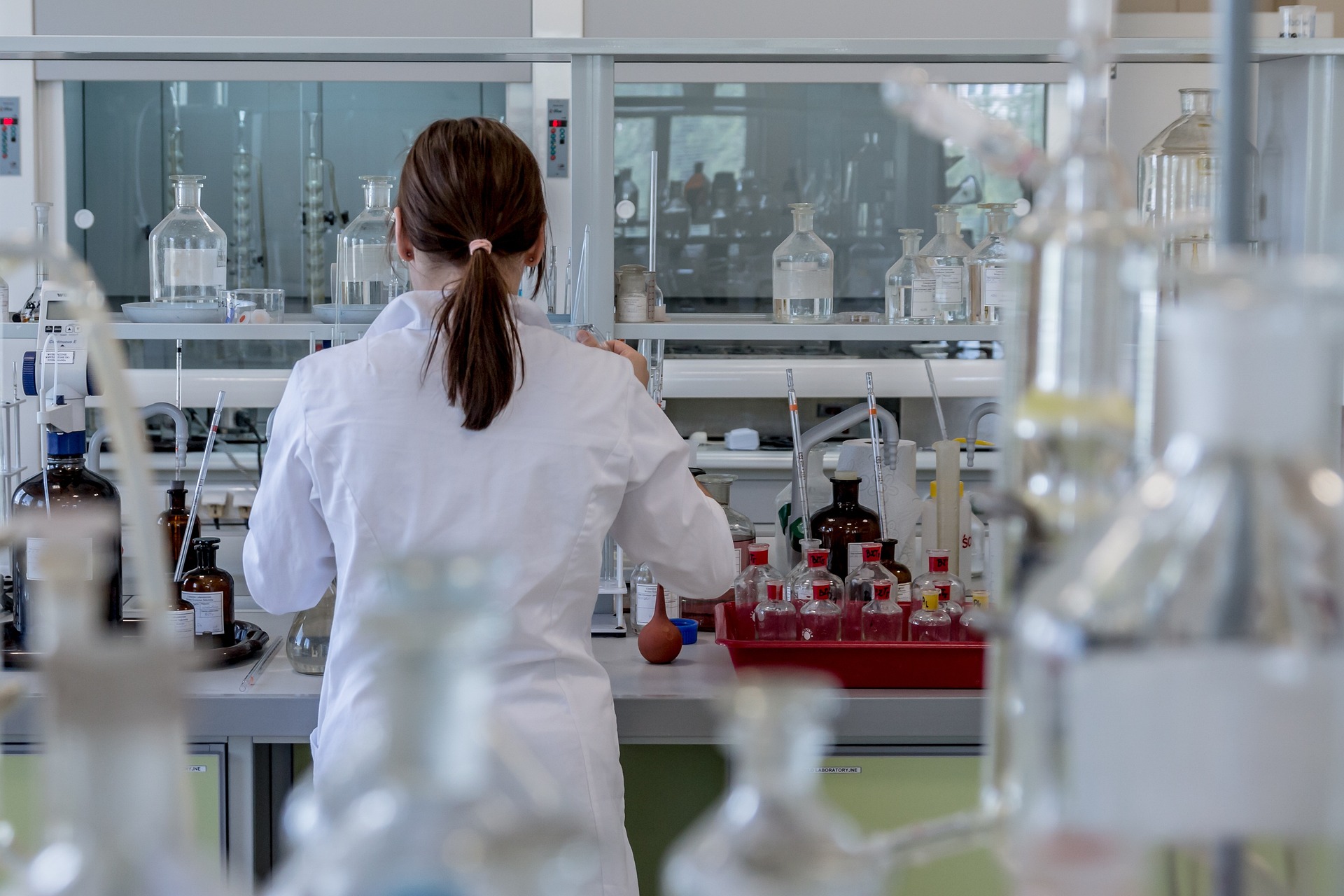 Foto: Michal Jarmoluk / Pixabay
Foto: Michal Jarmoluk / PixabayIn the discipline of chemistry, the number of successful doctorates is almost as high as the number of Master’s degrees. Most doctoral theses are written in the subject of medicine. These are the findings of the latest DataCHECK carried out by the CHE Centre for Higher Education.
A doctorate is the most advanced degree you can earn at a German higher education institution (HEI). According to the Federal Statistical Office, around 200,300 people were enrolled as doctoral students in Germany in December 2021. The number of doctorates successfully completed in 2021 was approximately 28,000. This equates to an increase of around 2,000 compared to the year 2020, which was severely impacted by the Covid-19 pandemic.
Despite the sharp increase in the number of first-year students since 2011, the number of doctorates awarded each year has remained constant. “The development of student numbers is not reflected in an increase in the number of doctoral theses. This could be due to a ‘ceiling effect’,” stated Cort-Denis Hachmeister. “This means that the number of PhD opportunities, especially those funded by scholarships or positions within a project, has not increased to the same extent as the number of places on undergraduate degree programmes,” explained CHE’s data expert.
Another explanation, according to Hachmeister, could also be that many of these additional first-year students chose not to study one of the subjects that are popular with PhD students – or were unable to do so because of admission restrictions. These subjects include medicine and the natural sciences, as illustrated by the CHE’s current DataCHECK.
More than half of the 27,500 doctorates awarded each year on average are in the subjects of medicine/dentistry, biology, chemistry, physics, mechanical engineering or law. Medicine tops the list, with an average of 6,832 PhD theses completed each year between 2019 and 2021, followed much further behind by biology (2,125), chemistry (2,097) and physics (1,625).
The DataCHECK also investigated the relationship between the number of PhDs awarded and the number of degrees qualifying for doctoral studies (Master’s, Diplom or State Examination, excluding teacher training degrees) at universities. Chemistry stands out in this respect, with a calculated PhD ratio of 85 per cent. In biology, three out of four graduates went on to do a doctorate; this was the case for nearly two out of three medical graduates. In contrast, there were fewer PhD graduates in engineering subjects such as mechanical engineering (25%) and electrical engineering (26%), or in languages and cultural studies such as history (25%) and German studies (16%), excluding teacher training students in each case.
When considering the PhD ratios, however, it is worth bearing in mind that the figures also include doctorates awarded to people who previously studied abroad. The same also applies to doctorates pursued in a different discipline to that taken at Master’s level. For more data on degrees for Germany as a whole and for the individual federal states, see the CHE University Data portal.
About the DataCHECK on Hochschuldaten.de:
CHE’s DataCHECK contains a brief analysis of the results on doctorates at German higher education institutions, as well as graphical illustrations. The analysis was based on data from the Federal Statistical Office. Cort-Denis Hachmeister wrote the DataCHECK 1/2023 “Promotionen am häufigsten in Naturwissenschaften und Medizin” (Doctorates awarded most frequently in the natural sciences and medicine). The DataCHECK is part of the new Länder portal www.hochschuldaten.de, where CHE publishes extensive university data for all 16 federal states.
